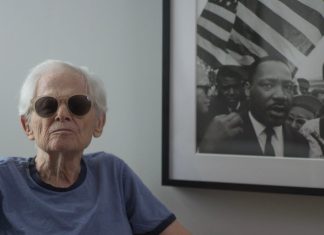The proliferation of mass timber construction is hampered by tariffs that jam supply chains builders rely upon to import materials from north of the border. In 2024, the U.S. imported 24 percent of its forest and soft wood products from Canada, accounting for $11.6 billion in trade. Now, softwood lumber products face 10 percent tariffs, and 50 percent tariffs for kitchen cabinets.
To bolster domestic production, FABRIC, a northern California advanced mass timber company, is partnering with WRNS Studio to launch California’s first large-scale mass timber production facility. The announcement comes after an executive order, issued last April by the Trump administration to the U.S. Department of Agriculture, mandating the expansion of American timber production by 25 percent.
The forthcoming 200,000-square-foot facility will be built in Redding, California, sandwiched between the Shasta-Trinity National Forest and Lassen National Forest. A nearby regional airport will facilitate domestic and international connections.
“We have a full ecosystem ready to change the way we build. An experienced team. Design and engineering support from inspiration to installation. Advanced manufacturing and fabrication facilities that produce CLT and GLT to exacting specifications,” FABRIC founder and CEO Scott Ehlert shared in a statement.
“Supply chain tracing to document sustainability and wildfire reduction efforts,” Ehlert added. “Partnerships to train and develop a workforce that will frame new opportunities for our state.”

FABRIC Mass Timber is collaborating with CalFire and the U.S. Forest Service on the transformational project. These entities will work together to source timber from forest thinning operations meant to combat wildfires, known as Hazardous Fuel Reduction projects. This will help create a new and abundant local supply chain of mass timber production, FABRIC said.
WRNS Studio said the design will set a new paradigm for industrial architecture. The firm noted the factory itself will be made of mass timber, a biophilic and adaptable kit-of-parts system that can be replicated by multiple industries—a playbook of sorts for scaling up California’s circular, low-carbon mass timber economy, and fast.
The practice with offices in California, Hawaii, and New York has long worked with mass timber. In 2020, it worked with Microsoft to design office space that was crowned North America’s largest CLT building in floor area. And more recently at Princeton University, WRNS married historic with contemporary architecture, combining brick facades with timber-clad interiors and structural columns.
Moving forward, FABRIC and WRNS are working together with educators at U.C. Berkeley, Cal Poly, and Shasta College to start a new, advanced manufacturing training program in order to prepare the next generation of forest industry leaders.







